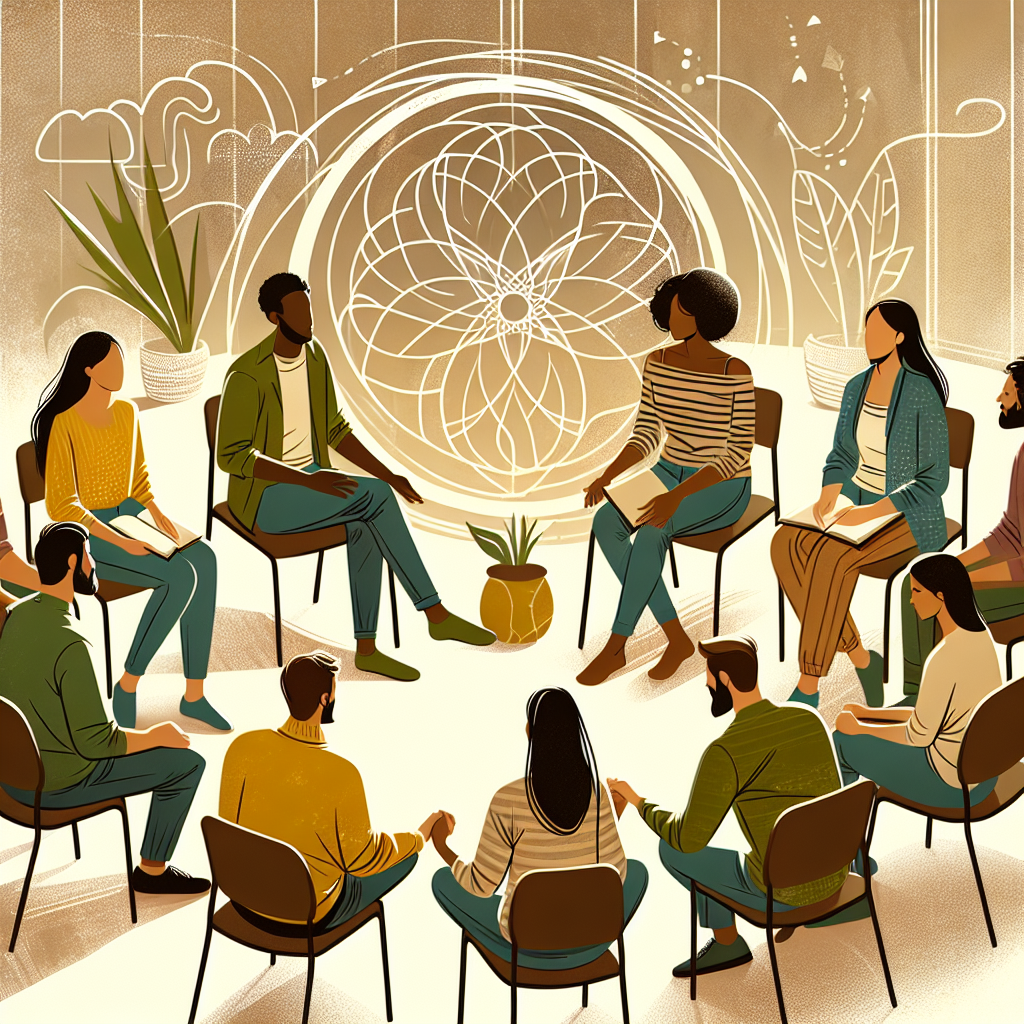In today’s fast-paced world, many people are experiencing feelings of isolation, anxiety, and depression. The demands of work, family, and social obligations can often leave individuals feeling overwhelmed and disconnected from others. This is where group therapy sessions can be incredibly beneficial. By exploring the power of connection through these sessions, individuals can find support, understanding, and healing in a safe and supportive environment.
Group therapy is a form of psychotherapy where a small group of individuals meet regularly with a trained therapist to discuss their thoughts, feelings, and experiences. These sessions are typically comprised of around 6-12 participants who come together to share their struggles, triumphs, and challenges with one another. Group therapy can take many forms, including support groups, psychotherapy groups, and skills-based groups.
There are numerous benefits to participating in group therapy sessions. One of the primary advantages is the sense of connection and camaraderie that is fostered within the group. Many individuals who attend group therapy sessions report feeling less alone and more understood by their peers. This shared experience can be incredibly validating and empowering, as it allows individuals to see that they are not the only ones struggling with their issues.
Additionally, group therapy offers members the opportunity to gain alternative perspectives on their problems. By sharing their experiences with others, individuals can receive feedback, insights, and suggestions that they may not have considered on their own. This can lead to increased self-awareness, personal growth, and improved coping strategies.
Group therapy also provides a sense of accountability and motivation for individuals to make positive changes in their lives. Knowing that they are not alone in their struggles can help individuals stay committed to their goals and aspirations. The supportive environment of the group can provide encouragement, inspiration, and reinforcement for individuals to take steps towards healing and growth.
Another benefit of group therapy is the opportunity for individuals to practice and improve their social skills. Many people who struggle with social anxiety, shyness, or communication issues find group therapy to be a safe and non-judgmental space to work on these areas. By interacting with others in a supportive setting, individuals can learn to express themselves more effectively, engage in healthy conflict resolution, and build stronger relationships with others.
Group therapy sessions are also more cost-effective than individual therapy sessions, making them a more accessible option for many individuals. This affordability allows more people to access the benefits of therapy and receive the support they need to overcome their challenges.
In addition to the emotional, psychological, and social benefits of group therapy, research has shown that group therapy can also have physiological benefits. Studies have found that participating in group therapy can lead to reduced levels of stress hormones, improved immune function, and better overall health outcomes. The power of connection and support in group therapy sessions can have a profound impact on individuals’ mental, emotional, and physical well-being.
Overall, group therapy sessions offer a unique and effective way for individuals to explore the power of connection and experience the benefits of shared healing and growth. By coming together with others who are facing similar challenges, individuals can find support, empathy, and understanding that can help them navigate their struggles and move towards a more fulfilling and balanced life.
FAQs:
1. What can I expect in a group therapy session?
In a group therapy session, you can expect to share your thoughts, feelings, and experiences with the other members of the group. The therapy sessions are typically guided by a trained therapist who will facilitate discussions, provide insights, and offer support to the group members.
2. Will my privacy be respected in a group therapy setting?
Yes, confidentiality is an important aspect of group therapy sessions. Group members are usually required to adhere to strict confidentiality guidelines to ensure that each individual feels safe and secure sharing their personal information in the group.
3. How do I know if group therapy is right for me?
Group therapy can be beneficial for individuals who are looking for support, connection, and alternative perspectives on their problems. If you are open to sharing your experiences with others and receiving feedback in a group setting, then group therapy may be a good fit for you.
4. Can I join a group therapy session even if I don’t have a specific issue or diagnosis?
Yes, group therapy sessions are open to individuals who are looking to explore personal growth, self-awareness, and social connection. You do not need to have a specific issue or diagnosis to benefit from the support and insights of a group therapy setting.
5. How long do group therapy sessions typically last?
Group therapy sessions can vary in length, but they typically last around 1-2 hours per session. The duration and frequency of the sessions will depend on the specific group and therapy format that is being offered.
6. What if I don’t feel comfortable sharing in a group therapy setting?
It is normal to feel hesitant or nervous about sharing in a group therapy setting, especially if you are new to the experience. It is important to communicate your feelings and concerns with the therapist and group members so that they can provide support and encouragement as you navigate your comfort level in the group.
Overall, group therapy sessions offer a safe, supportive, and empowering space for individuals to explore the power of connection and experience the benefits of shared healing and growth. Whether you are seeking support for a specific issue or looking to enhance your personal growth and self-awareness, group therapy can be a valuable resource for finding connection, understanding, and healing in a collaborative setting.




Leave A Comment